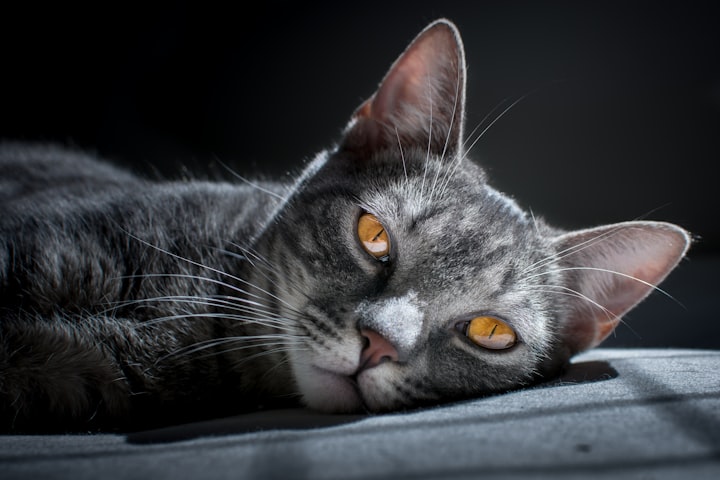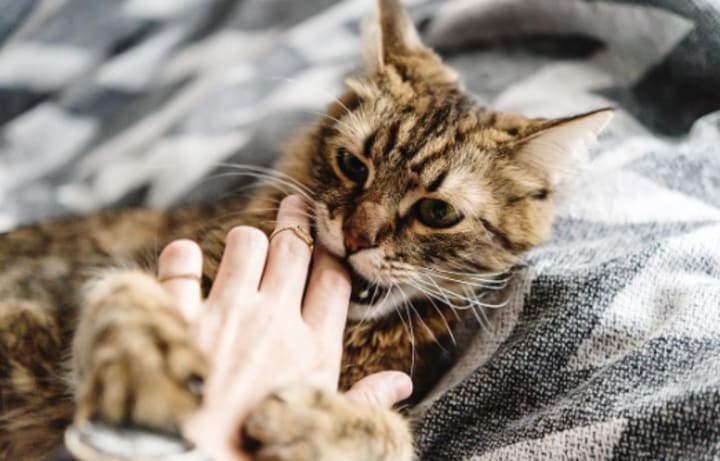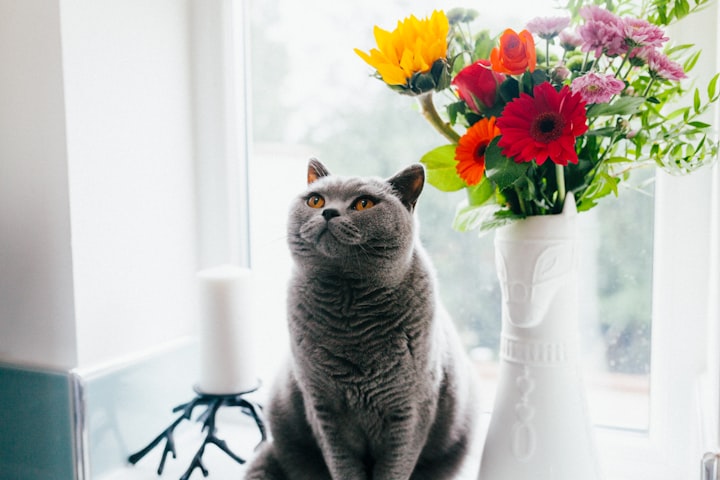The cat foresees its own death and how it will hint to its owner.
Cats use 5 details to tell people parting is coming

Every cat can foresee the day of its death.
Cats that are kept at home all year round will even politely inform their owners of their parting in advance.
Free-range cats will leave the place where they live before they die, and they will not let people see their last appearance. Those cats that have been kept in captivity all their lives, on the other hand, embark on a different behavior pattern: unlike their semi-domesticated or wild relatives, purely domesticated cats are more deeply invested in their humans.
These cats will begin preparing their "cat afterlife" three months before they die and will provide clear information to their owners.
If you can read a cat's "end-of-life message", you can know that your precious feline friend is about to leave your world quietly.
After observing 200 cats over the age of 15 and following them through their final years, Cat-Res scientists found that cats exhibit significant "behavioral changes" in the three months before they die.
This is not just a matter of the cat's physical health.
These cats, to a greater or lesser extent, acted in ways that felt perverse.
Seventy percent of cats spend 15% more time with their owners than before, starting 3 months before they die.
25% of cats will find something under the couch or cupboard for their owners in the 3 months before they die. It may be something that the owner has lost for years.
More than half of the cats will behave like kittens to their owners.
Thirty-five percent of cats will carry toys and actively seek out their owners to play with them, even when they are asleep or at times previously thought unthinkable.
20% of unneutered male cats will be more aggressive in leaving scent on their owner's supplies or owner's body during the 3 months of dying.
Cats can accurately grasp their health status.

In the 3 months before death, domestic cats will begin to find their "last place" themselves.
They know that they cannot avoid being found, but like their ancestors, they will still look for a secluded and quiet place.
If you look closely, you will see that these older cats begin to patrol the home, nd then you may not be able to find them for hours on end.
These dying cats will find places such as closets, under the heater, gaps in the wall with enough room to hide and try. If you can often find them here, then these cats will start looking for new places.
Until the cat chooses the most secure and quiet place in the house: a place where humans arrive at a relative minimum.
Once the "final place" is determined, the cat will begin to prepare a "cat's deathbed message" for you.
The cat will use five small details to politely tell you that it is leaving you.
The cat will suddenly exhibit many of the actions and even purrs of a kitten. This is especially true if you've had the cat since she was 9 months old or younger.
The cat will begin to "want" to eat "the first food it has eaten since it arrived at your home". For example, if you gave your cat beef for its first meal when it arrived at your home, the dying cat will likely be pestering you for beef. You can think back to the year when you fed it the first bite of something, when you give it this food, the cat will be happy to eat. It does not necessarily like the food very much, but it is a behavior of the cat before it dies.
Cats suddenly start to lick you, especially many cats who have never licked people in their lives and will lick their owners at the end of their lives. This is the equivalent of the cat "grooming" you, which is the clearest signal the cat can give you. If your very old cat suddenly starts to lick you, you should be aware that it may be a parting.
The cat left something for you or found something you lost for you. Some cats will catch bugs in the house and give them to you, or find something you lost a long time ago through a crack in the back of a cabinet and give it to you. Cats that can go outside will usually bring back a mouse or bird they caught for their owners once before they leave home at the end of their lives.
Cats will leave their scent on everything in the house as much as possible. Cats on their deathbeds will rub their bodies often, and some unneutered cats will pee more often. They try to leave their scent, for a longer time, on top of their former territory.
Very old cats will worry about their owners before they die.
According to one school of animal behavior, cats that live in human homes for years will treat their owners as "animals dependent on the cat for survival". The cat will consider the human home as its territory.
Cats are aware of the difference between humans and cats.
The cat will also realize that humans are not as "capable as animals themselves", especially modern humans who have been affected by junk food and electronics.
The dying cat will be deeply worried.
Cats will cue their owners with information about their death.
This is because the cat is worried that its dead body will cause problems for its owner: the cat instinctively believes that a dangerous animal will come to eat its dead self, and this may cause a crisis for the owner.
The cat will believe that the "cat body" will create a health hazard in the owner's environment. In the wild, cats will also deal with dead cats in their territory.
Most importantly, the cat will worry that the owner will not be able to guard the territory.
In the wild, a female cat will assign her territory to her children. And for male cats, losing territory means death. When a cat knows he is leaving, he will worry about the safety of his owner who will still be living in the territory in the future.
If you find yourself with a cat that is about to leave.
You have to pretend not to know and silently watch over your cat so that it can walk its final journey as happily as possible.
When you have done so.
The cat can also understand that it conveys the parting gift, you have read.
Partners who have lived together for more than ten years will always have a tacit understanding written with their lives.
About the Creator
Rachel Caspari
Life is just a series of trying to make up your mind.






Comments
There are no comments for this story
Be the first to respond and start the conversation.